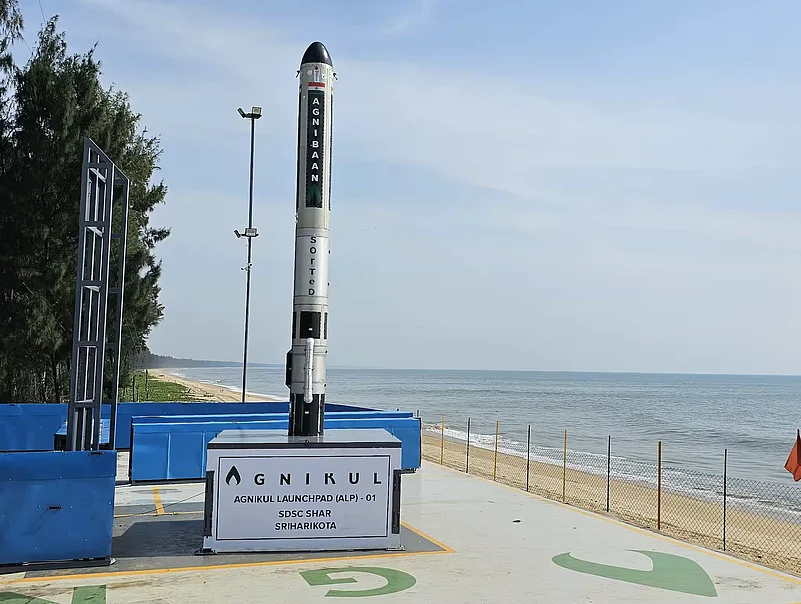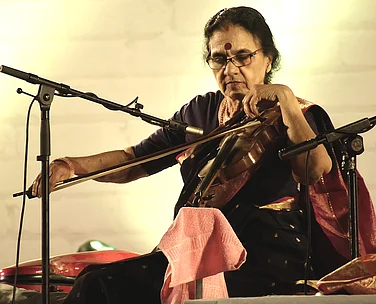After four failed attempts due to technical glitches, Chennai-based private space start-up Agnikul Cosmos successfully test-fired its rocket named Agnibaan SOrTeD (Suborbital Tech Demonstrator) on the fifth attempt on Thursday.
With this, ISRO flew a semi-cryogenic engine for the first time. Besides, ISRO also tested the startup's first-ever 3D printed engine in ground tests on May 9.
The Indian Space Research Organisation (ISRO) has announced that the Chennai based start-up successfully launched the rocket at 7.15
"Congratulations @AgnikulCosmos for the successful launch of the Agnibaan SoRTed-01 mission from their launch pad. A major milestone, as the first-ever controlled flight of a semi-cryogenic liquid engine realized through additive manufacturing," ISRO posted on X.
According to Srinath Ravichandran, a co-founder of the space start-up, "This launch is significant since it is India's first launch from a private launchpad and the rocket has the world's first single piece 3D printed engine designed and built indigenously."
Right ahead of the launch, the start-up issued a statement saying, "Agnibaan SOrTeD (Suborbital Tech Demonstrator) is a single-stage launch vehicle driven by Agnikul's patented Agnilet engine - an entirely 3D-printed, single-piece, 6 kN semi-cryogenic engine. Agnibaan SOrTeD will lift off vertically and follow a predetermined trajectory. The trajectory, manoeuvres and various flight events that will occur during the mission have been configured to validate tech integral to the success of our upcoming orbital flights. We are excited to be attempting this flight from our own launch pad [named Dhanush] at Sriharikota."
Agnibaan SOrTeD rocket: Key features
As per reports, the Agnibaan SOrTeD rocket weighs 575 kg and is 6.2-metre long. On Tursday, it was lifted off from Sriharikota plunging into the Bay of Bengal.
The rocket houses a semi-cryogenic engine that functions on commercially available aviation turbine fuel like kerosene and medical grade liquid oxygen which makes fuel procurement convenient and low-cost.
Agnikul demonstrated the first semi-cryogenic and 3D printed engine developed by the Indian private sector. 3D priting technology efficiently reduces the quality testing time for such engines.
Once the Agnibaan rockets become fully operational, Agnikul Cosmos, the Cennnai-based space startup, is expected to launch 30 to 300 kg satellites into space on demand.
Agnikul Cosmos to build special launchpad in Sriharikota
Besides building a rocket powered by semi-cryogenic engine, as per media reports, Agnikul has also received a greed flag to build a special launchpad near the sea on the Sriharikota island with its own dedicated control room.
So far the space startup has already assembled an investment of 40 million dollars and has a team of 250 members all bustling with energy to turn India into a hub for small satellite launches.






























